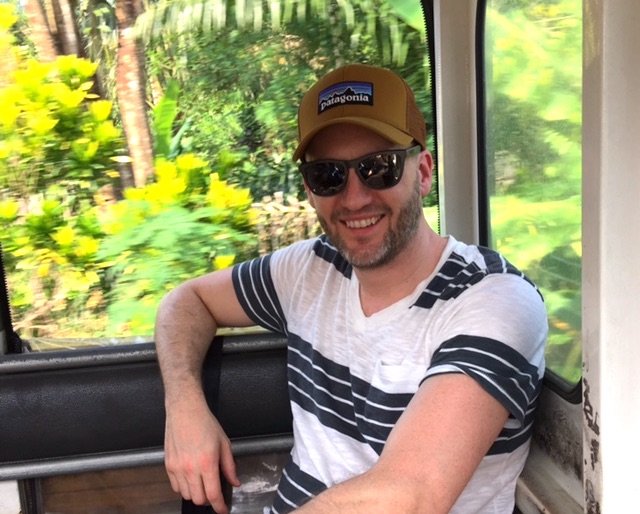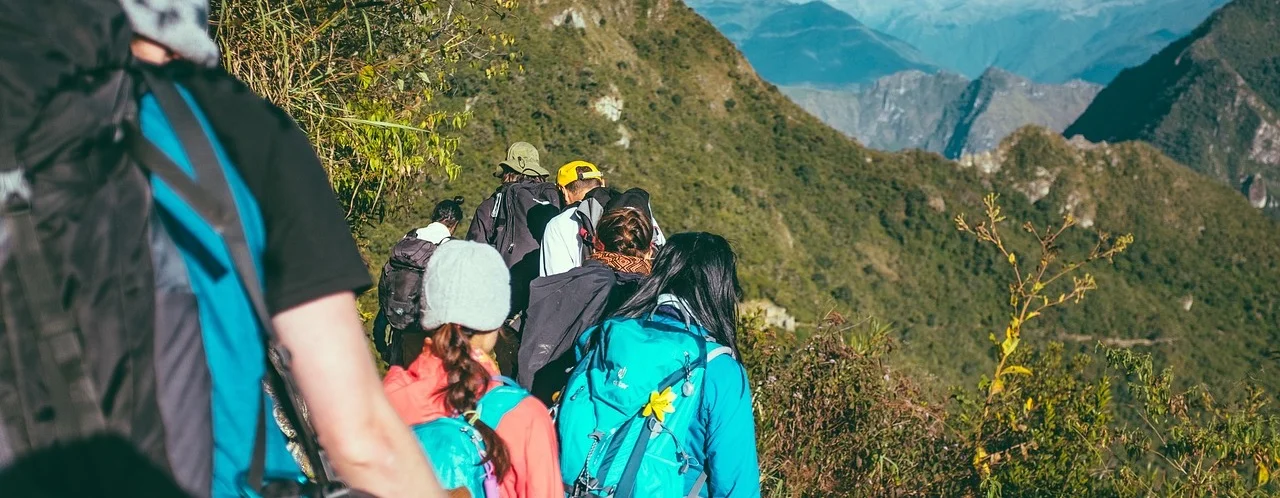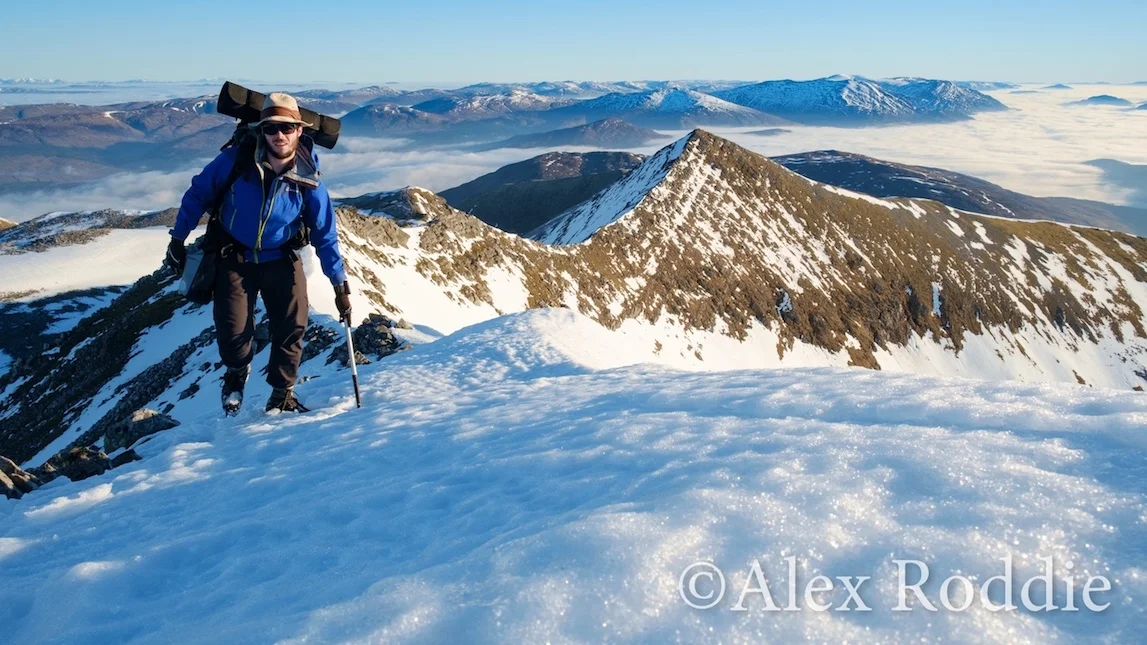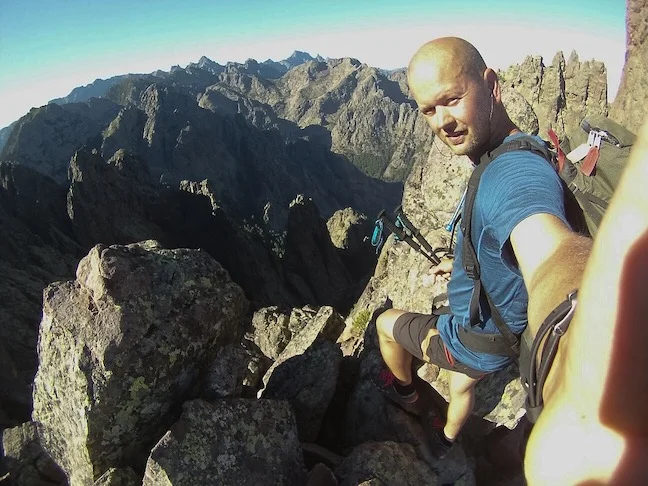Approximate reading time: 8 minutes.
Is it fear rather than finances that prevents us from fulfilling our ambitions and experiencing a more adventurous life? IN TWO ARTICLES I SHARE MY THOUGHTS AND THOSE OF SOME SEASONED ADVENTURERS AS WELL AS SOME KEY LEssons for all to apply.
After a recent blog post in which I outlined my plans for adventure in 2017 someone mentioned to me that it was "easy for me” to plan the adventures I spoke about in 2017, free of financial constraints. It is a valid point though not entirely accurate as outlined in Part 1 of this two part feature.
It is my belief that it is mindset rather than money that dictates an adventurous and interesting lifestyle and "travel style" and I hope that, through this web site, I can help and inspire some people to think differently about this. I have gathered the thoughts of some very different people; Ash Dykes, Alex Roddie, Gilad Nachmani and Daniel Smith ("my friend Dan" from a previous post), all experienced in the art of living a more adventurous life.
"adventure starts as soon as you start thinking about it."
In the second part of this feature on funding adventure I share the thoughts of Alex Roddie and Daniel Smith. Alex has some excellent insight and practical advice on expectations and the cost of adding a little adventure into your lifestyle along with an example of a great long-distance hike that cost him around £300 (approx. $365) including transport. Daniel Smith is "my friend Dan" from previous posts. He is someone I have spoken about in the past as being an inspiration. Dan does have financial constraints. On the face of it he works between adventures and finds a way to fund them so below is his perspective on what is required to "do stuff". At the end of the article I have added some key lessons that I shall take with me from these interesting and valuable interviews as I continue my journey towards a more adventurous and fulfilling life.
ALEX RODDIE - @ALEX_RODDIE
Alex is a writer, editor and photographer specialising in adventure travel. He is a regular contributor for The Great Outdoors magazine, UKHillwalking.com and is a sub-editor of Sidetracked Magazine.
AM: To what extent do financial considerations or limitations affect your choice of adventure?
AR: They certainly have an impact on me, although not as big an impact as they used to! When I started hillwalking and mountaineering as a teenager, funds were tight and I was only able to afford one or two trips a year. Although public transport was often the most visible immediate expense for my trips, in fact the main limiting factor was equipment, and it took years before I could afford to build up the climbing equipment I needed. Because I didn't have the gear to take on more technical routes, I remained a hillwalker for longer than I would have liked.
When I moved on to mountaineering and winter climbing, I soon found that I didn't always need the very best or most expensive kit (even though I thought I did at the start!). I begged, borrowed, saved, and made the best out of what I had.
Ten years later, I'm a lightweight backpacker first and foremost. The biggest difference for me now is that backpacking is part of my job – I'm an outdoor writer, so I get paid for my adventures! That doesn't mean money is no longer a constraint, though. In many respects it's just as much of a constraint as it has always been, because I need to tread a delicate line between selecting adventures worth writing about, but also ones that will allow me to make a living. So in some ways my habits have changed remarkably little.
AM: Do you think people have an excessively narrow view of what adventure travel is, or how they might achieve it?
AR: Magazines, books and TV tend to portray adventure travel in a certain way, and this can restrict expectations, but there is a great tradition of hillwalking and backpacking in the UK – both of which count as adventure travel! Yes there are costs involved in both activities, but neither are likely to be as expensive as navigating to the source of the Amazon. I believe that adventure media presents aspirational stories as well as down-to-earth ones. It's up to us to choose the adventures to suit our own ambitions (and pockets).
AM: What advice would you give to someone who wants to embark on some more adventurous travel, (perhaps a long distance hike, cycle ride or any kind of “alternative” travel) but does not believe he or she has the means to do so?
AR: Working for Sidetracked Magazine has shown me that there's almost always a way if you want it badly enough. I have edited hundreds of stories by individuals who have overcome incredible odds in the name of adventure – maybe quitting a job, crossing continents with no food and no money. Anything is possible with enough drive.
For those bigger projects, there is help available if you know where to look. Clubs and societies offer expedition grants. Crowdfunding is now a real option that many people have used to great effect. If you're tenacious enough, manufacturers can sometimes be persuaded to supply equipment in exchange for reviews and exposure. And, if you have the right story at the right time with good enough photography, outdoor and adventure magazines will pay you to write articles.
I've found that the main factor in keeping my own costs down is to live as frugally as possible on the trail. Public transport is now my only major expense. When I get to my destination, I avoid hotels and eating out – wild camping is free, basic food is often very cheap, and what else do you really need? Even transport costs can be kept down by booking well in advance.
AM: Can you perhaps give one or two examples of cheaper / low tech adventures you have been on or might suggest?
AR: In 2015 I hiked the Cape Wrath Trail, a 241-mile hike through the Scottish Highlands from Fort William to Cape Wrath. The total cost to me (excluding equipment costs) was around £300. That includes a £150 return train ticket, two nights in commercial campsites, one night in a hotel (it was raining and I was tired!), the odd pint of ale, and food for three weeks. I ended up writing three magazine features about the trail that launched my career in outdoor writing – and, of course, more than paid for the trip!
You can follow Alex on Twitter or find out more on his web site: alexroddie.com
Daniel Smith
Amongst his current pastimes Dan counts; open water swimming, thru-hiking, snowboarding, sailing and trail running. He has walked the GR20, the HRP, the Lycean Way in Turkey, and most recently sailed the Atlantic.
AM: Did you make a conscious decision to be more adventurous?
DS: No I don't think so. In my early twenties I would get out into the countryside for long runs five times a week which I really enjoyed but as I entered my mid twenties I started thinking about travel, I'd started to get a bit restless and knew there was more to life than working five days a week and drinking as much as possible on the weekend. My younger brother persuaded me to join him on a snowboarding holiday and after a week of pain, frustration and pure joy I knew I had to spend a large period of time near a mountain. I would say I was drawn to it. It was something I had to do.
AM: When you first thought about going on a long adventure to what extent did the financing of this kind of lifestyle have any impact or did you just pick a challenge and find a way to finance it?
DS: Well to pursue my dream of snowboarding all winter I asked my boss at the time for six months off work. He agreed, reluctantly. Perhaps he thought I'd return early as after two months I got a message asking me if I was coming back. I wrote back thanking him for everything and apologised because I had no desire to return. I did my first winter with £2000 and a capital one credit card, which was shown very little respect. For the following two summers I raised funds by taking labouring work with a joiner and a plumber and also worked at a double glazing firm. The summer work allowed me the luxury of being able to keep winter work to a minimum, enabling me to get out everyday.
AM: Is this something you continue to do?
DS: No I don't snowboard as much as I used to although I have been out today as it happens. I focus on a wider range of activities - I've just started training for a swimrun event and I'm hoping to climb a 4000m+ mountain in the summer. As far as work goes I now have sufficient building experience to work on renovations here in France. I'm busy with work most of the year and, because I'm working with like-minded people, I have a lot of flexibility which allows me to go adventuring when needed.
AM: When you first jacked things in to walk the Pyrenees from end to end had you made a decision to embark on adventures and make your life revolve around those, rather than the other way around?
DS: With the Pyrenees trip I think I'd turned a corner in life, grown up a little, I'd had some very low points, ended a relationship and made a conscious effort to improve my thinking. Before that trip I'd taken a factory job near my parents. I had some serious knee problems due to an altercation with a rock, which stopped me being as active as I had been previously. I promised myself that I'd only work there for years to get some cash together and to regain fitness. It ended up being four years as my knee took a while to recover. But I made the most of the overtime and eventually took voluntary redundancy. As I approached the last few months of my time at the factory I felt a strong desire for adventure. I had been going to a local climbing wall a few times a week and had overheard a conversation about walking the GR10… I didn't know anything about long distance hiking but knew that was exactly what I wanted to do. After a bit of research I decided to do the Haute Route Pyrénées. So for me the HRP was the beginning of a new chapter - a reward for the difficult times and a celebration of health. In the end it had such an effect on me, I think I will always want to make time for similar adventures.
AM: What would your advice be to someone who is reluctant to commit to something because of the concern over the financial impact of such a commitment?
DS: If you have real financial concerns over a particular commitment then just be realistic. Not everyone has to climb Everest to have an adventure. The most important thing is to get out there even if it's just a run at night or a weekend camping trip. Adventure is a state of mind. The good thing is the adventure starts as soon as you start thinking about it.
Key Learnings
It doesn't necessarily take much more imagination to have an adventure on a shoe string. Generally it is down to how you view things; indeed the tighter budget may have the added benefit of being more manageable, closer to home and involve no flying! Here are some key learnings from the interviews in this feature to help you take that first step:
Don’t let financial concerns limit your adventure.
- Don't think about what an adventure might cost, but rather spend the time thinking what constitutes and adventure.
- Believe you can do something, research it and commit to it - anything is possible if you really want it.
- You don't need all the best gear to enjoy yourself, take that first step.
- Don't feel you have to look far afield to find some adventure.
- Wild camping is free.
- When expending energy you can live with quantity over quality of food - it needn't be expensive.
- Transport can be the main financial burden, so book well ahead to reduce costs.
Ideas to be more adventurous without spending more.
- Be inspired by headline-grabbing stories but realise that adventure is largely within you.
- Take something simple and do it differently.
- Start on a small scale or in small steps to avoid the paralysis that a large daunting prospect can induce.
- Adventure starts as soon as you start thinking about it.
- Remember that adventure travel is not just a holiday, it is a valuable learning experience, building skills (and probably relationships) that are useful in all areas of life.
Still having trouble raising the funds?
- If you think you have an idea for a new adventure, look into clubs and societies offering grants or consider crowdfunding. Next week I will be posting a long list of useful links of adventure grants and awards that may be of interest to anyone looking to drum up support for a bigger adventure.

LATEST BLOG POSTS
I quit the rat-race to live a more adventurous life. This is my journey.



